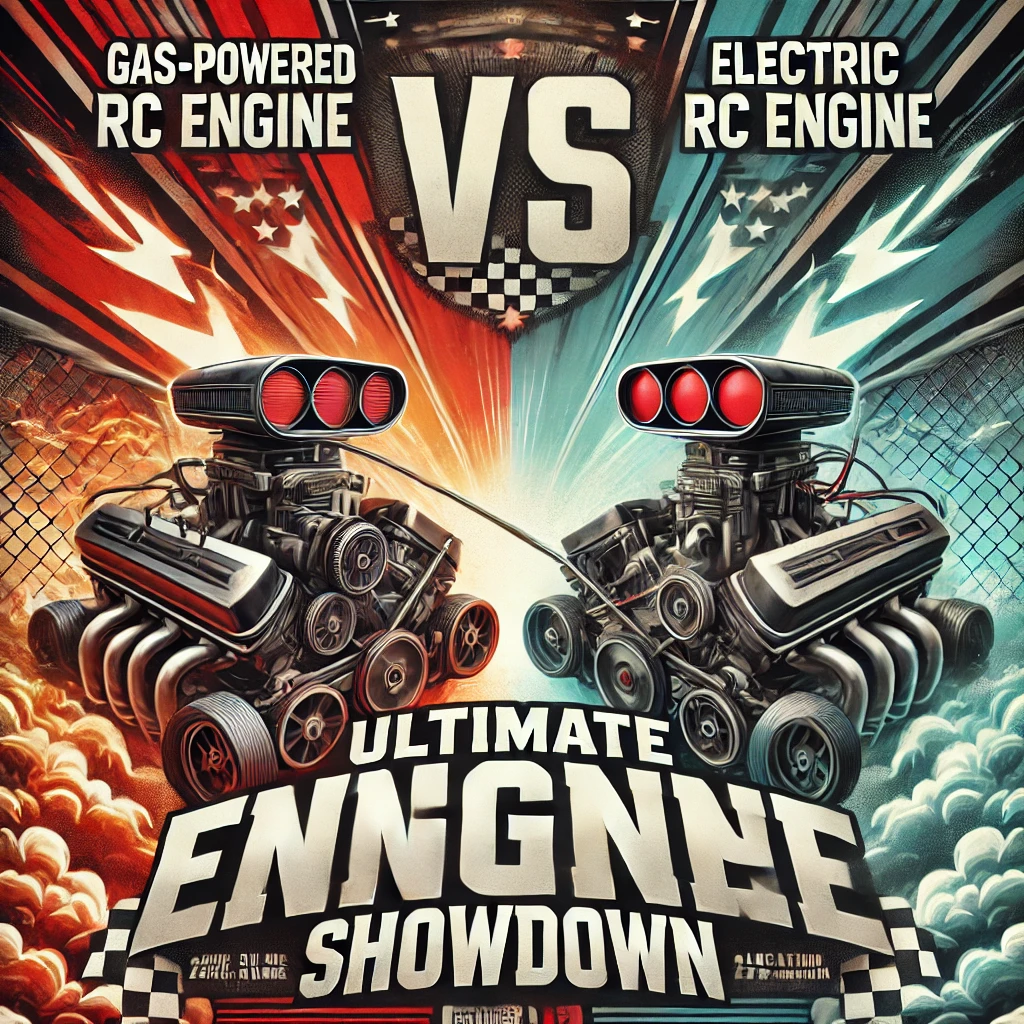The choice between electric and gas-powered RC airplanes has long been a topic of debate among hobbyists. Each power source offers unique advantages and challenges, shaping the experience of building, flying, and maintaining an RC airplane. This article provides a comprehensive introduction to both types of RC airplanes, helping enthusiasts make an informed decision based on their flying style, maintenance preferences, and performance expectations.
Understanding Electric RC Airplanes

Electric RC airplanes are powered by electric motors, which use batteries as their energy source. Over the past two decades, advancements in battery technology have significantly increased the popularity of electric RC models.
Advantages of Electric RC Airplanes
- Ease of Use: Electric airplanes are generally easier to operate. They require less setup and maintenance compared to gas-powered models.
- Quiet Operation: Electric motors are much quieter than gas engines, making electric airplanes suitable for use in more locations without noise concerns.
- Cleanliness: There are no exhaust fumes with electric airplanes, which makes them environmentally friendlier and easier to maintain without the mess of oil and fuel residues.
- Precision: Electric motors provide precise throttle control, which improves the handling and performance of the airplane, especially during complex maneuvers.
- Cost-Effective: Although the initial cost of some high-end electric setups can be high, the overall cost of running and maintaining an electric airplane can be lower than that of a gas-powered model, particularly due to the lower cost of electricity versus gas.
Disadvantages of Electric RC Airplanes
- Limited Flight Time: Battery capacities limit flight durations. Although batteries continue to improve, flight times are generally shorter compared to gas-powered airplanes.
- Battery Expense and Care: High-quality batteries can be expensive, and they require careful charging, usage, and storage practices to maintain their lifespan and safety.
Understanding Gas-Powered RC Airplanes

Gas-powered RC airplanes use internal combustion engines, typically running on either glow fuel (nitro) or gasoline.
Advantages of Gas-Powered RC Airplanes
- Longer Flight Times: Gas-powered airplanes can fly much longer on a single tank of fuel compared to electric airplanes on one battery charge.
- Fuel Efficiency: Gasoline is more energy-dense than typical RC batteries, leading to extended flight times and potentially lower energy costs over time.
- Realistic Experience: Many hobbyists enjoy the realism of gas engines, including the sound and the smell, which can enhance the authenticity of scale models.
- Power: Gas engines generally produce more thrust than similarly sized electric motors, which can be beneficial for larger models or those requiring high power output.
Disadvantages of Gas-Powered RC Airplanes
- Complex Maintenance: Gas engines require regular maintenance, including cleaning, tuning, and sometimes repair, which can be intricate and time-consuming.
- Noise and Pollution: Gas engines are louder and produce exhaust fumes, which can limit where you can fly and have environmental impacts.
- Operational Complexity: Starting a gas engine often involves more steps than starting an electric motor and can require additional equipment.
- Cost: The initial setup for a gas-powered airplane can be higher, considering the engine and the supporting equipment needed.
Comparative Analysis: Electric vs. Gas-Powered

Performance
Electric motors deliver consistent power output and superior throttle response, which is ideal for aerobatics and precision flying. Gas engines excel in endurance and power, making them suitable for larger models and longer flights.
Cost
Electric airplanes often have a lower entry cost and less maintenance expense but can become pricey if opting for high-capacity batteries and fast chargers. Gas-powered models might cost more upfront and in upkeep but can be more cost-effective regarding the energy per flight.
Suitability
Electric airplanes are best for those who prefer convenience, quieter operation, and flying in various locations, including near residential areas. Gas-powered airplanes are favored by those who enjoy longer sessions, the DIY aspect of engine tuning, and the sensory experience similar to traditional aviation.
Environmental Impact
Electric airplanes are cleaner, producing no emissions during flight, making them a more environmentally friendly option. Gas-powered airplanes, however, emit exhaust gases and can contribute to noise pollution.
Conclusion
Choosing between electric and gas-powered RC airplanes ultimately depends on personal preferences and specific flying needs. Electric models offer simplicity and are generally easier to maintain, making them excellent for beginners and those who prefer clean, quiet operation. Gas-powered airplanes provide longer flight times and a tactile experience that can be rewarding for the enthusiast who enjoys tinkering and traditional flying.
Both types of RC airplanes have their merits and can provide countless hours of enjoyment. Whether you are drawn to the high-tech appeal of electric flight or the hands-on satisfaction of a gas-powered craft, the RC aviation hobby offers something for everyone.
